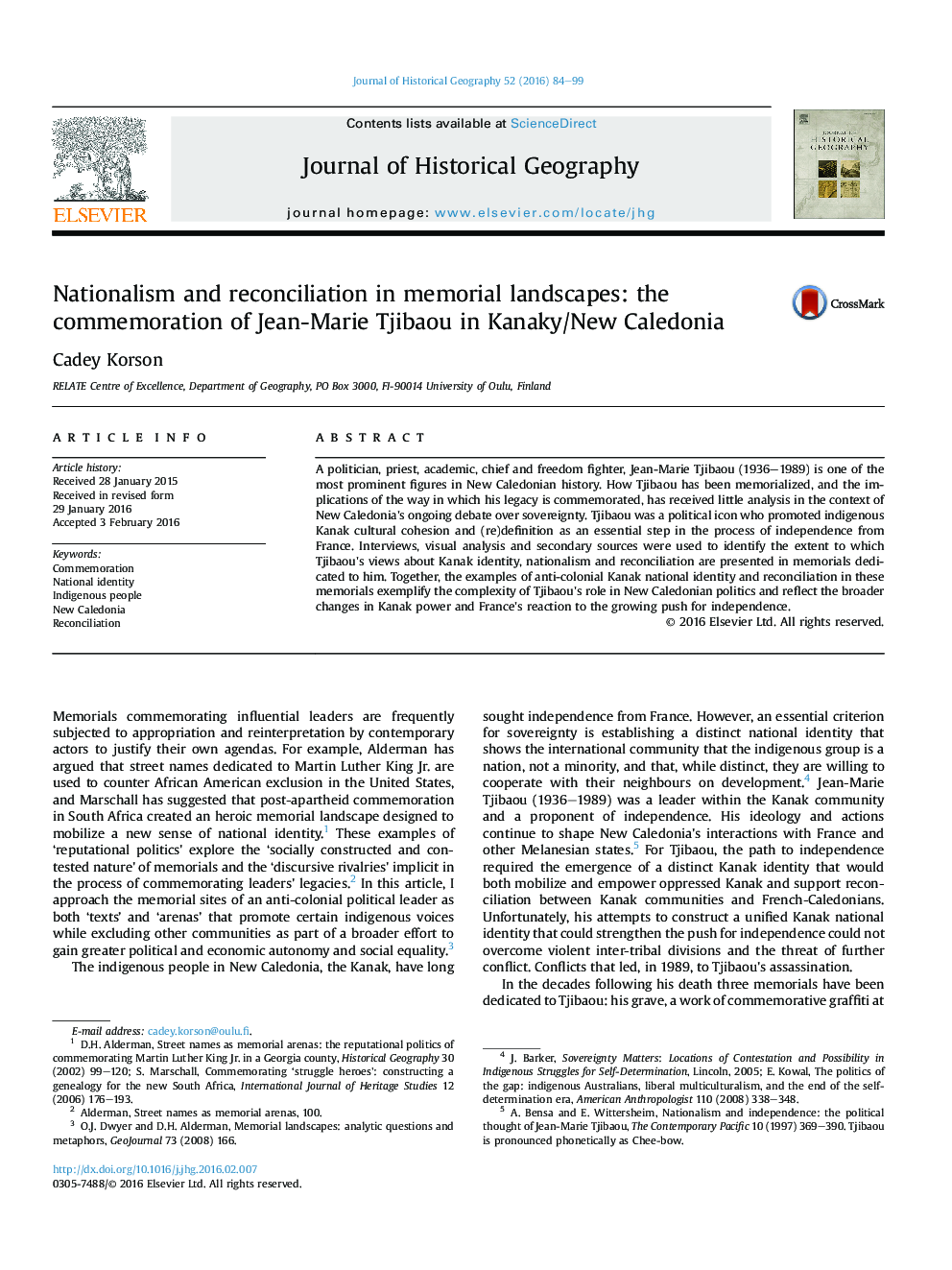| Article ID | Journal | Published Year | Pages | File Type |
|---|---|---|---|---|
| 1038931 | Journal of Historical Geography | 2016 | 16 Pages |
•Demonstrates how marginalized groups use memorials to support claims for self-determination.•Illustrates that commemorative sites can become spaces of reconciliation or positive change.•Examines how far Tjibaou's memorials both reaffirm anti-colonial nationalism and promote reconciliation.•Argues that Tjibaou's memorials have helped shape the sovereignty debate in New Caledonia.
A politician, priest, academic, chief and freedom fighter, Jean-Marie Tjibaou (1936–1989) is one of the most prominent figures in New Caledonian history. How Tjibaou has been memorialized, and the implications of the way in which his legacy is commemorated, has received little analysis in the context of New Caledonia's ongoing debate over sovereignty. Tjibaou was a political icon who promoted indigenous Kanak cultural cohesion and (re)definition as an essential step in the process of independence from France. Interviews, visual analysis and secondary sources were used to identify the extent to which Tjibaou's views about Kanak identity, nationalism and reconciliation are presented in memorials dedicated to him. Together, the examples of anti-colonial Kanak national identity and reconciliation in these memorials exemplify the complexity of Tjibaou's role in New Caledonian politics and reflect the broader changes in Kanak power and France's reaction to the growing push for independence.
